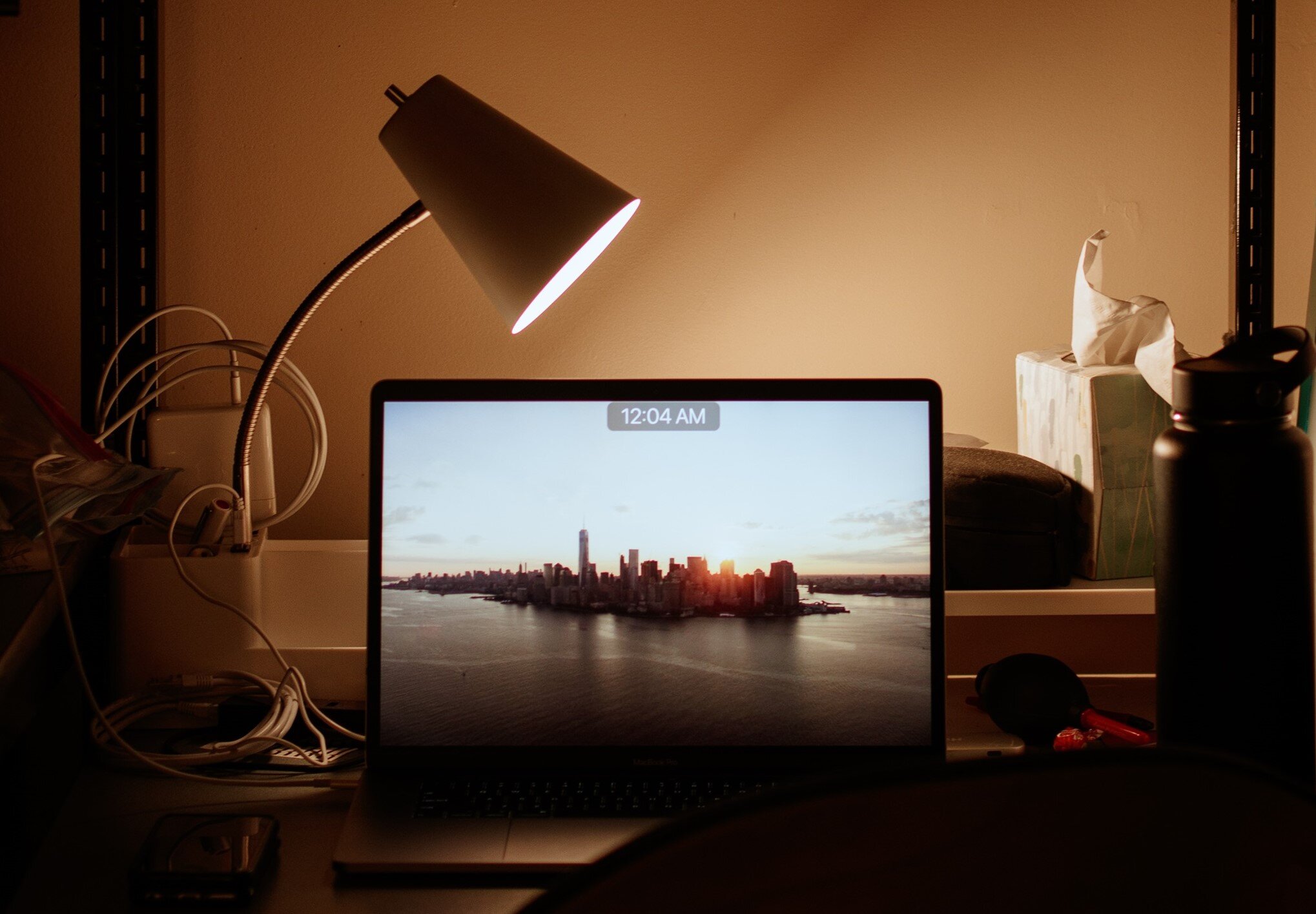In today’s digitally dominated world, excessive screen time is a norm for many, leading to a host of health issues, including disrupted sleep patterns and eye problems.
The link between prolonged computer use and poor sleep is increasingly evident, necessitating strategies to mitigate these effects.
Understanding the science of sleep and how screen time impacts it is crucial.
By examining recent sleep statistics and incorporating practices grounded in sleep science, individuals can find effective ways to improve their sleep quality despite the challenges of the digital age.

The Science Of Sleep
Sleep is an essential biological process vital for physical and mental health. It plays a crucial role in metabolic functions like immunity, cardiovascular health, and cognition.
Adults generally need 7 to 9 hours of sleep, but most Americans average only about 6.8 hours. Surprisingly, younger adults (18-29 years) tend to sleep less, with nearly half getting six hours or less, while older adults (65+) typically get more sleep.
This discrepancy highlights a concerning trend in sleep habits among different age groups.
Sleep Statistics: Insights And Trends
Understanding the complexities of sleep and its disorders requires a deep dive into the world of statistics.
These numbers do more than just quantify; they reveal patterns, highlight trends, and uncover the hidden impact of sleep-related issues on various demographics.
By analyzing sleep statistics, we can grasp the scale of sleep disorders like insomnia, assess the consequences of sleep deprivation, and identify the multitude of factors influencing sleep quality.
This knowledge is pivotal for developing targeted interventions and fostering greater awareness about the critical importance of healthy sleep habits in our increasingly digital lifestyle.
Prevalence Of Sleep Disorders And Insomnia
Between 50 to 70 million Americans suffer from some form of sleep disorder, with insomnia being the most common.
Approximately 30% to 40% of American adults show symptoms of insomnia, and the rate among healthcare workers has notably increased during the COVID-19 pandemic.
Insomnia prevalence is higher in women than in men, and genetic factors play a significant role in its occurrence.
Impact Of Insomnia And Sleep Deprivation
Insomnia and sleep deprivation not only affect the quality of life but also contribute to chronic mental and physical health issues like heart diseases, obesity, diabetes, and mental health problems.
In the U.S., insufficient sleep is more common in men than women, and factors like socioeconomic status and ethnicity also influence sleep patterns.
Notably, 60% of people do not seek help for their sleep problems, indicating a gap in awareness and access to sleep health resources.
Factors Influencing Sleep Quality
Various factors contribute to sleep disturbances, including physical discomfort like back pain, anxiety about the next day’s events, and environmental conditions like room temperature.
Moreover, lifestyle choices such as caffeine intake and technology use significantly affect sleep onset and quality.
The impact of these factors is evident across different demographics, with young adults experiencing more sleep problems compared to older age groups.

Enhancing Sleep In The Digital Era
In the digital age, where screens are an integral part of life, ensuring quality sleep has become a significant challenge.
This section explores effective strategies to enhance sleep for those who frequently use computers and electronic devices.
Addressing The Blue Light Challenge
Prolonged exposure to screens, especially before bedtime, is known to interfere with sleep by suppressing melatonin production, increasing alertness, and affecting sleep stages like REM sleep.
The blue light emitted by devices like computers and smartphones plays a key role in this disruption.
To mitigate these effects, it’s advised to reduce screen time, especially in the hours leading up to bedtime.
Using devices with “nighttime mode” that reduce blue light emissions and brightness, and considering blue light-blocking glasses, can also be beneficial.
Establishing Sleep-Friendly Routines
Creating a bedtime routine is essential in signaling your body that it’s time to wind down.
This routine could include activities like reading, taking a warm bath, or practicing relaxation techniques such as yoga or meditation.
Equally important is a morning routine that sets a positive tone for the day.
This routine might include waking up at a consistent time, avoiding electronics in the first hour of the day, and engaging in activities that energize you for the day ahead.
Consistency Is Key
Maintaining consistency in your sleep and wake times is crucial.
This regularity aligns with your circadian rhythm, enhancing the quality of your sleep. Sticking to a schedule, even on weekends, helps in establishing healthy sleep patterns.
Optimizing The Sleep Environment
Creating an optimal sleep environment involves decluttering your bedroom, using dimmer lighting, and removing electronic devices from the sleep area.
Adjusting room temperature to a comfortable level and using blackout curtains can also aid in creating a conducive environment for sleep.
Lifestyle Modifications And Remedies
Lifestyle changes such as reducing caffeine intake, avoiding late-night snacking, and limiting alcohol consumption before bedtime can significantly improve sleep quality.
Additionally, exploring natural sleep remedies like essential oils, relaxation podcasts, or changes in exercise routines can also be effective.
Key Takeaway
Achieving better sleep in a world dominated by screen time is a multifaceted endeavor requiring awareness, routine, and environmental optimization.
The key lies in understanding the impact of blue light on our sleep cycle, establishing sleep-friendly routines, and maintaining consistency in our sleep patterns.
Optimizing our sleep environment to be conducive to rest, alongside making lifestyle adjustments like moderating caffeine and alcohol intake, can greatly enhance sleep quality.
Finally, embracing natural sleep remedies and relaxation techniques can provide the extra support needed to combat the sleep challenges posed by our digital lifestyles, leading to improved overall health and well-being.